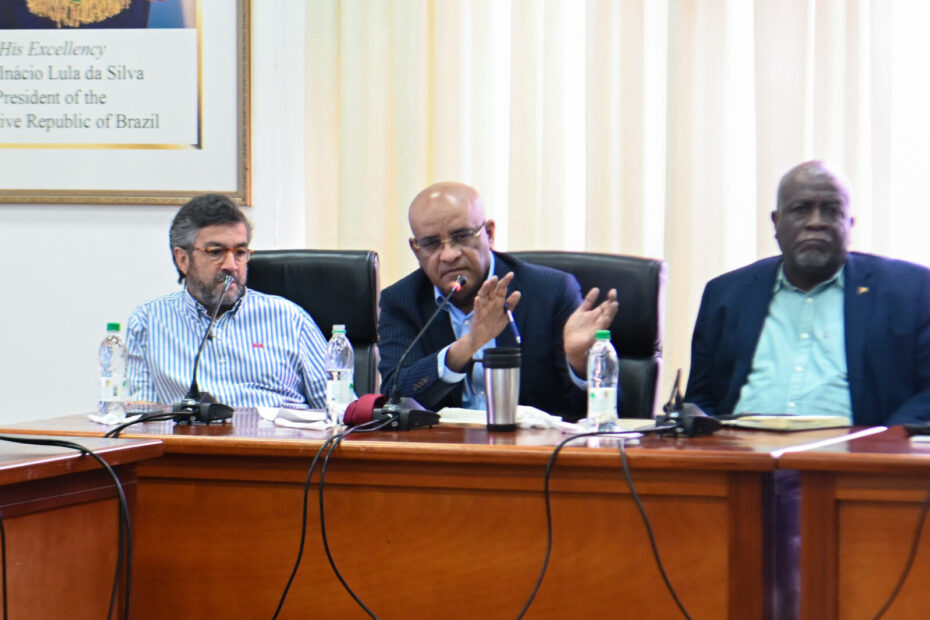The Latin American Conservation Council (LACC) possesses a unique blend of business development and conservation expertise that through meaningful collaboration can propel Guyana’s sustainable development goals.
This is according to Vice President Dr Bharrat Jagdeo, who was speaking during a meeting with the LACC, at the Arthur Chung Conference Centre on Friday.

The Latin America Conservation Council (LACC) is a group of global leaders who work with ‘The Nature Conservancy’ (TNC) to protect Latin America’s biodiversity, climate, and food and water systems. The Council works to promote nature-based solutions that contribute to conservation and development.
Dr Jagdeo said that the LACC can provide advice on new methods of building out a modern economy, and assist in exploring innovative financing mechanisms and partnerships to fund Guyana’s biodiversity protection and low-carbon development strategies.

He emphasised that Guyana is on a journey of modernising and developing its economy and government, while also preserving its rich natural resources and biodiversity.
However, he identified several challenges the country is facing in achieving this goal. These include the drive to diversify the economy beyond just oil and gas.
Another challenge is ensuring future prosperity is not overly dependent on fossil fuels as the global economy decarbonises.
The vice president underlined that Guyana is a ‘work in progress’, tackling multiple challenges simultaneously as it transitions to a more modern, diversified and environmentally-conscious economy.
“So essentially, one task before us is to have an efficiently functioning modern economy. The second task is to make sure that we are working [to ensure that] we would have diversified the economy. That’s why [we have] huge incentives for agriculture. The third task is to ensure that we keep this rich patrimony we have, which is of forest and biodiversity and everything else,” he said.
Dr Jagdeo noted that the diverse expertise offered by the LACC can render great support in advancing Guyana’s developmental goals.
“I believe that in this room you have some very impressive people, both in the field of business development and conservation. So, we want to ensure that we make full use of your skills and you as resources,” he said.
However, the VP also outlined the significant strides made in bringing stability to the economy and achieving these critical goals.
The government’s ambitious digital strategy includes a plan to implement e-governance, aimed at using digital technology to revolutionise all sectors, including healthcare, education, and transportation.
As part of this initiative, the government has signed a $34.5 million contract with German company Veridos Identify Solutions to implement a national e-identification system.
Further, the modernisation of financial laws and reducing bureaucracy to facilitate greater ease of doing business also lend to the overarching goal of creating an efficiently functioning modern economy.
On the diversification front, Dr Jagdeo highlighted heavy investments in agriculture and tourism.
“We have now moved our Low Carbon Development Strategy from forest conservation into biodiversity protection, protection of our water, integrated water management adaptation, and also the marine economy. So, it’s a broader strategy, and work is ongoing in each of these areas to give them a full effect,” he added.
Under this framework, the government has also successfully monetised Guyana’s forest carbons through the Architecture for REDD+ Transactions (ART). In 2022, the government and Hess Corporation signed a historic agreement in which the American oil producer agreed to purchase high-quality carbon credits. Hess said it would pay a minimum of US$750 million between 2022 and 2032.

